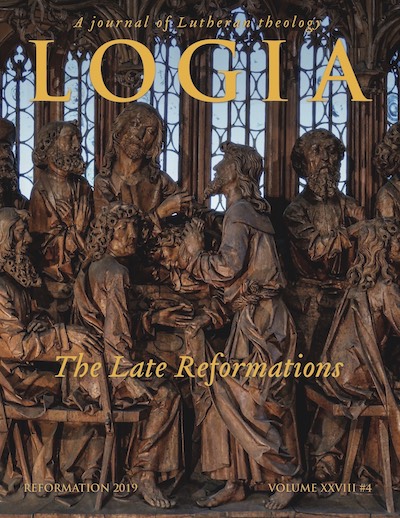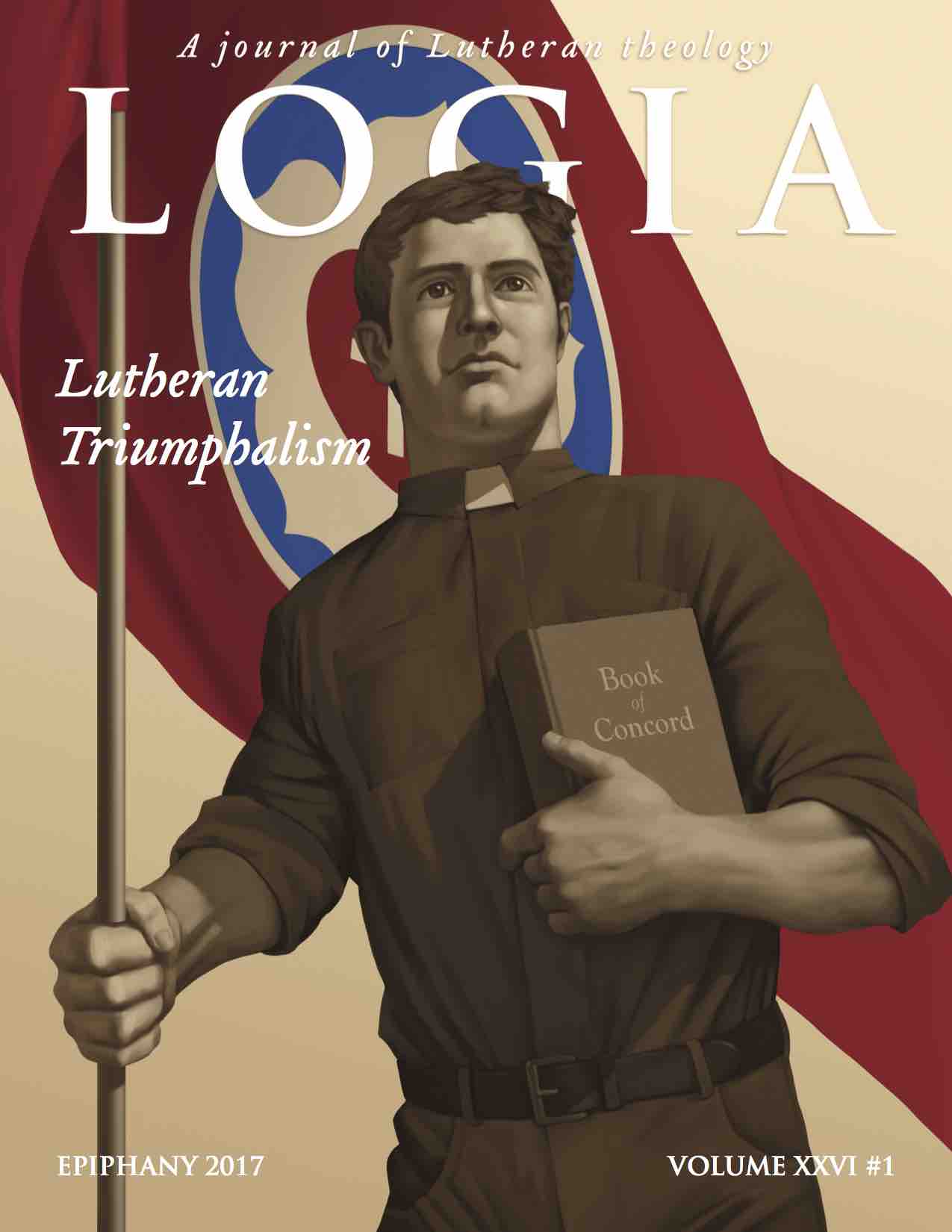Introduction
—by Wade Johnston
This issue was edited as the rhetoric of the United States presidential election primary season came into full swing. Election seasons are often contentious and seldom pretty, but this year’s is vying for a spot in a class all its own. Perhaps as much as any other election, Christians have a vested interest in this one. Much has changed — and more quickly, perhaps than at any other time in the lifetimes of those reading this. The Bible has not changed, and the doctrine of the two kingdoms remains the same, but culturally and societally life for the American Christian, who holds dual citizenship in the temporal and spiritual kingdoms, has taken on a different sense and feel. It is a salutary thing, then, to review what Scripture and the Lutheran Confessions have to say in this regard and to wrestle with how we apply Lutheran principles to new circumstances.
Purchase the Life, Liberty, and the Pursuit of Happiness Issue of LOGIA here.
A particular strength of this issue is that it helps the reader to see how Christians have wrestled with and applied two-kingdom theology not only in our contemporary American context but also across time and space. Seeing the church wrestle with the two kingdoms in various circumstances and settings helps us identify our own personal, cultural, and contemporary blind spots. Moreover, the experience of fellow Christians in the past and across the globe provides lessons for our own setting.
This issue begins with a call from Gene Veith to remember that God, while hidden in the temporal realm, is nevertheless active in that realm — active especially in his Christians, who need not, indeed dare not, neglect their citizenship in this realm. Through their vocations Christians serve for the benefit of their neighbor as masks of God, through engagement in the world and not withdrawal from it. The temporal kingdom is the realm of the law and reason, and yet the same gracious God who provides us with second- and third-article gifts in the spiritual kingdom graciously, mercifully, and undeservedly provides first-article gifts in the temporal kingdom.
Michael Berg unpacks the natural human desire for life, liberty, and happiness. From Aristotle to America’s fathers, the desire for happiness and the good life has been a driving force. To what extent people have control of the pursuit of the same and what exactly happiness is has been debated, but that happiness (whatever it may be) is something worth having and to be pursued in so far as we are able has been a given. As Berg reminds us, though, only the cross can provide true, meaningful, and lasting perspective, helping Christians to see meaning even in suffering, which is inescapable in this life and undermines all human ploys for the good life (summum bonum) and enduring temporal happiness.
My own article explores Luther’s doctrine of the two kingdoms and how he responded to the changing political atmosphere of his day. Challenged by a potential imperial invasion, Luther, Melanchthon, and the Wittenberg circle were faced with the very stark question of whether it was appropriate for Lutheran princes and imperial cities to mount a defense. Informed by the jurists of constitutional arguments — and yet, to the jurists’ occasional consternation, steadfast in their commitment to the Scripture’s teaching regarding obedience and just war — they carefully addressed the issue of resistance, which was later taken up by Magdeburg in its legendary opposition to the Augsburg Interim and Leipzig Proposal.
Voldemārs Lauciņš expands our horizons with lessons from Latvia in the previous century. While this may be new ground for many readers, they will find it fruitful. It is good to realize that the temporal realm is organized differently elsewhere and presents various challenges and opportunities throughout the world.
Jack Kilcrease provides valuable insight for Christians as they wrestle with the end of Christendom. His solution is delightfully unoriginal: law and gospel. This is a most welcome call not to lose sight of the church’s task and message in the light of new challenges. Moreover, Kilcrease reminds us that there are opportunities in the midst of contemporary tumult. After tracing how we got to where we find ourselves today, he notes that even persecution can serve for the benefit of the church, as it has in the past. This need not be an age of retreat and decline. What this age needs is nothing other than what sinners in every age have needed, whether the culture bore vestiges of a bygone realization of it or not: Christ.
Finally, changing gears and focus, Frederic W. Baue, like Lauciņš, expands our geographical horizons, this time to Ethiopia. Readers will be thankful that the gospel is being preached, taking root, and charting its course in Ethiopia. They will also, keenly aware of the challenges it faces here in America, not be surprised that it faces challenges abroad as well. We rejoice that confessional, liturgical Lutheranism is making inroads and we pray that the Lord will allow it to continue to do so in Ethiopia, America, and throughout the world.
We are excited to bring you these articles in print. We pray that you are edified by them, and we look forward to receiving correspondence. Life in two kingdoms is as complicated as ever and yet the Christian is blessed to live and love both God and neighbor in each. We are not the first to struggle with two-kingdom theology and, unless our Lord comes soon, we will not be the last. We are not alone; throughout the world Christians are struggling to live as citizens of two realms and to serve well in both. This issue strives to remind us of that and to inform our own thinking by casting a broad view geographically and temporally.



















